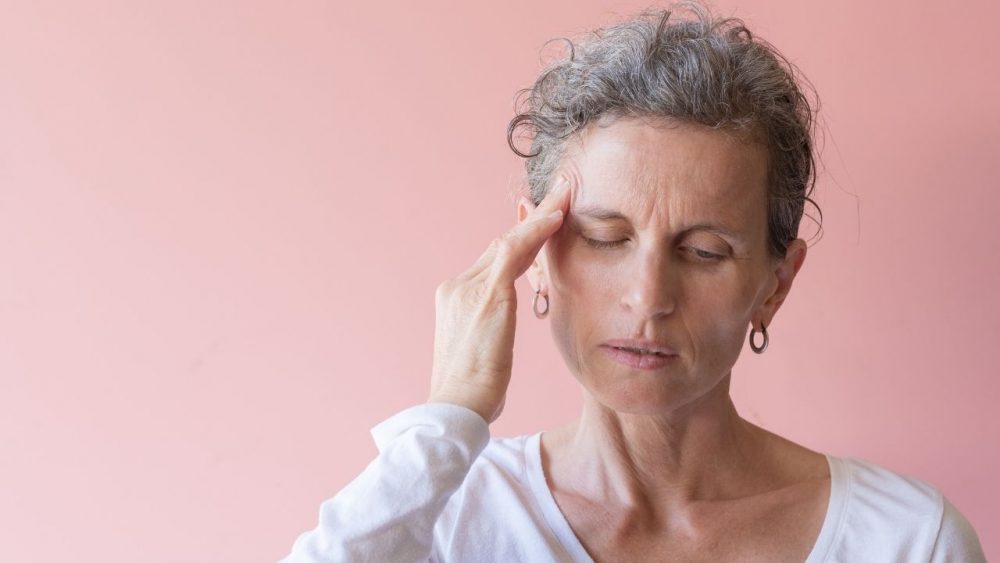First online menopause clinic launches in the UK
| 4th May 2021

| 4th May 2021

First online menopause clinic launches in the UK: The first ever online menopause clinic has launched in the UK, offering personalised treatment options to millions of women suffering from menopausal symptoms.
The Online Menopause Centre (OMC) provides virtual video consultations and individually tailored treatment plans to menopausal and perimenopausal (the period leading up to the menopause) women.
OMC, which is regulated by the Care Quality Commission (CQC), has been founded by GP and menopause expert Dr Laila Kaikavoosi, who has over 20 years’ experience as a GP and has spent the past seven years focusing on treating and helping women suffering from the menopause and menopause related conditions.
Around 13 million women in the UK are currently peri or menopausal – equivalent to a third of the entire female population – and its impact can be severely debilitating. Symptoms range from hot flushes/night sweats, headaches, sleep problems and joint pains to anxiety, poor memory, low self-confidence and loss of libido.
Dr Kaikavoosi set up the specialist service to offer wider treatment options to those suffering from the impact of the menopause. She also wanted to provide an option for those women who are time poor due to work or family commitments and may struggle to attend conventional face-to-face medical consultations. Research carried out by OMC shows that 73% of women would use an online menopause service.
In addition, since the COVID-19 pandemic, people may be reluctant to visit a GP as they do not wish to overburden the NHS and may be fearful of contracting the virus.

Said Dr Kaikavoosi: “Many women just put up with peri or menopausal symptoms and can be reluctant to seek help for a variety of reasons, despite the damaging affect it can have on their physical and mental health. Every woman’s experience is different and there is no ‘one size fits all’ approach. At OMC we provide expert advice and personalised treatment that is accessible, affordable and convenient and can help women return to their optimal health.
“Despite advances in menopause treatment, I still hear too many stories of women not having access to a suitable type of HRT or who are prescribed anti-depressants, which do not address the root cause of the problem. Women who come to OMC will be given the time to explain their symptoms and medical history so we can prescribe the best treatment plan that is tailored specifically to them.”
Patients are offered an introductory ‘virtual’ online appointment with an experienced menopause and women’s health doctor and there is no charge for this. From this, if the doctor believes the patient would benefit from a treatment plan, a further in-depth 30-minute consultation is arranged, and a personalised treatment plan is prescribed. This is followed by regular reviews.

Doctors take a holistic approach, with patients prescribed newer and better tolerated types of HRT, as well as nutrition and lifestyle recommendations.
The cost of the service is £195 for an initial consultation and £125 for a follow-up review, with medications ranging from less than £1 to £2-3 per day, depending on the type of HRT prescribed.
OMC patient Elaine Fraser sought help from the clinic after experiencing severe perimenopausal symptoms for two years.
Said 49-year-old Elaine: “I was totally desperate – I’d become aggressive, would have terrible mood swings and crippling anxiety that left me socially inept. I went to see my GP but, unfortunately, they weren’t really experienced in the perimenopause and just prescribed me a type of HRT which made me feel weird and mute.
“Within days of seeing a specialist at OMC and being prescribed biologically identical hormone replacement therapy, I felt like a completely changed woman and virtually back to my old self. The beauty of OMC is that not only are you seeing a dedicated menopause specialist, but it is convenient, as you can access it from your own home, no matter where you live.”
In addition to treating menopause and perimenopause, OMC also offers advice on hormonal balancing as supplementary treatment for thyroid dysfunction, osteoporosis, pre-menstrual syndrome (PMS), polycystic ovaries syndrome (PCOS) and endometriosis.

ABOUT THE MENOPAUSE AND PERIMENOPAUSE
Menopause (meaning meno = menstruation, pause = stop) literally means the end of menstrual cycles. It is diagnosed when a woman has not had a period for 12 months and the average age in the UK is 51, although this can vary widely depending on family history (women generally reach the menopause around the same age as their mum or other first degree female relatives). Menopause is also influenced by a woman’s own medical and social history (for example cancer treatment buy clomid online such as chemotherapy/radiotherapy), as well as lifestyle (weight, diet/nutrition, exercise, stress levels).
Symptoms of menopause are: hot flushes/night sweats, headaches, palpitations, thinning hair, joint pains, bloating, dryness, urinary urgency, anxiety/low mood, irritability, low self-confidence, low libido, poor memory/focus.
Perimenopause means ‘around’ the menopause and can start a few months before a woman becomes menopausal to as far back as 8 to 10 years prior to her menopause. Women start experiencing mild to moderate signs and symptoms of hormonal imbalances years before they reach their menopause. One of the very first perimenopause symptoms are changes to sleep pattern and mood. As this usually coincides with increasing professional, family and social responsibilities the link to hormonal imbalance as the cause is often missed.
Symptoms of perimenopause are: period changes, hot flushes and night sweats, mood changes, vaginal dryness, sleep problems, weight changes.
ABOUT HRT
HRT can be broken down into three general categories. OMC mainly prescribes rBHRT and in some individual circumstances cBHRT may be considered.
1 Synthetic or conventional HRT
This is the older type of HRT which is made from ‘synthetic’ hormones and is in predetermined dose. Although this hormone replacement option has helped many women, with the advancement of research, menopause specialists are moving away from this and opting for the more body similar forms of hormone replacement (see rBHRT and cBHRT).
2 rBHRT
Regulated bioidentical hormone replacement therapy (rBHRT), also referred to as body identical hormones, are bioidentical hormones regulated by the regulatory authorities e.g. MHRA (Medicines and Healthcare products Regulatory Agency). Unlike synthetic/conventional HRT, rBHRT are hormones which have chemical structures identical to the naturally occurring hormones a woman produces. rBHRT is available in a number of predetermined dosages and is now considered to be the preferred type of HRT with better tolerated side effects. rBHRT are licensed medications.
3 cBHRT
As with rBHRT, compounded bioidentical hormone replacement therapy (cBHRT) are hormones which have chemical structures identical to the naturally occurring hormones a woman produces. The prescriptions are individually prescribed, and the dosage can be tailor made to the needs of the woman. cBHRT is an option used by OMC for those women who do not tolerate rBHRT and it is only prescribed by doctors who are experienced and trained in prescribing this form of HRT. All cBHRT prescribed by OMC doctors is made in a compounding pharmacy whose activities are regulated by the General Pharmaceutical Council (GPhC). This type of HRT is unlicensed and is not regulated by the regulatory authorities (e.g. MHRA).